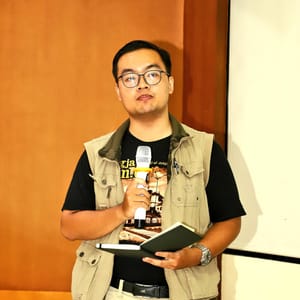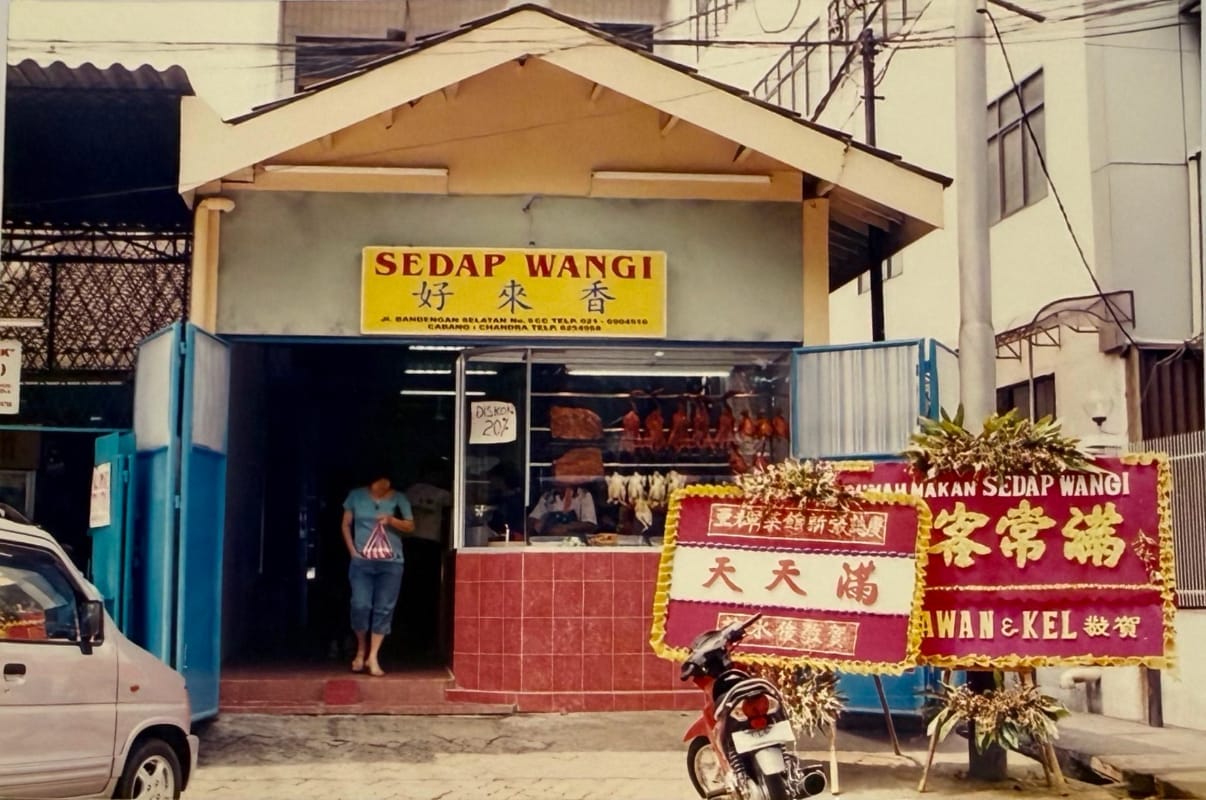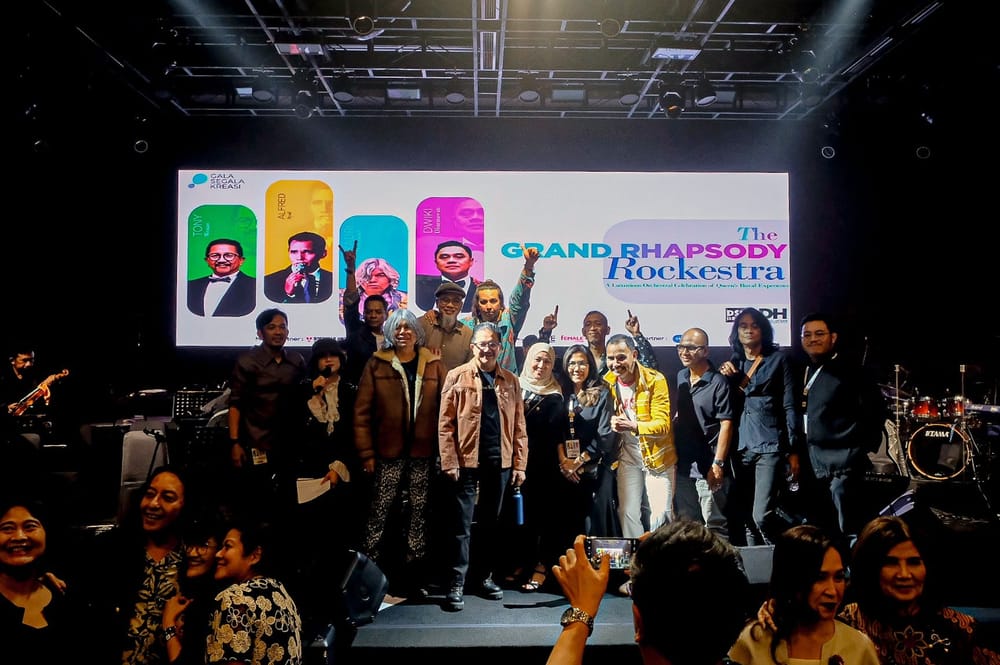A group of family members arrived at the Nasi Campur Sedap Wangi outlet in Pinangsia, West Jakarta, one afternoon with rumbling stomachs. They range in age from children, adult men, and a middle-aged man. The atmosphere was intimate as they exchanged greetings with the woman behind the counter.
"We just stopped by again, Ci. We live far away now, but we came here because Papa missed eating," said the older man, pointing at the middle-aged man.
The family story sticks in Kevin Fernando's mind. At only 25 years old, Kevin finds such scenes very moving.
Family values, for Kevin, are one of the keys that have allowed the nasi campur outlet he now leads to go this far.
"Our customers have enjoyed mixed rice from grandfather, father, to son. This means that we are trusted by every family from generation to generation," he said.
Trust, for him, is something that is not easy to earn. Not only from the customers for the consistency and flavor of the mixed rice served, but also the trust from the parents who started the business from scratch.
To SUARKevin shared his story of receiving the baton of the family business, which now has three branches and is preparing the fourth.
Instead of simply enjoying the fruits of his parents' labor, Kevin breaks the stigma of the heir generation in his own way, from building a brand through persistent digital marketing to innovating like never before.
The goal? It's not just for the legendary outlets to become legends, but to continue to surf with the times, making tongues dance for every generation.
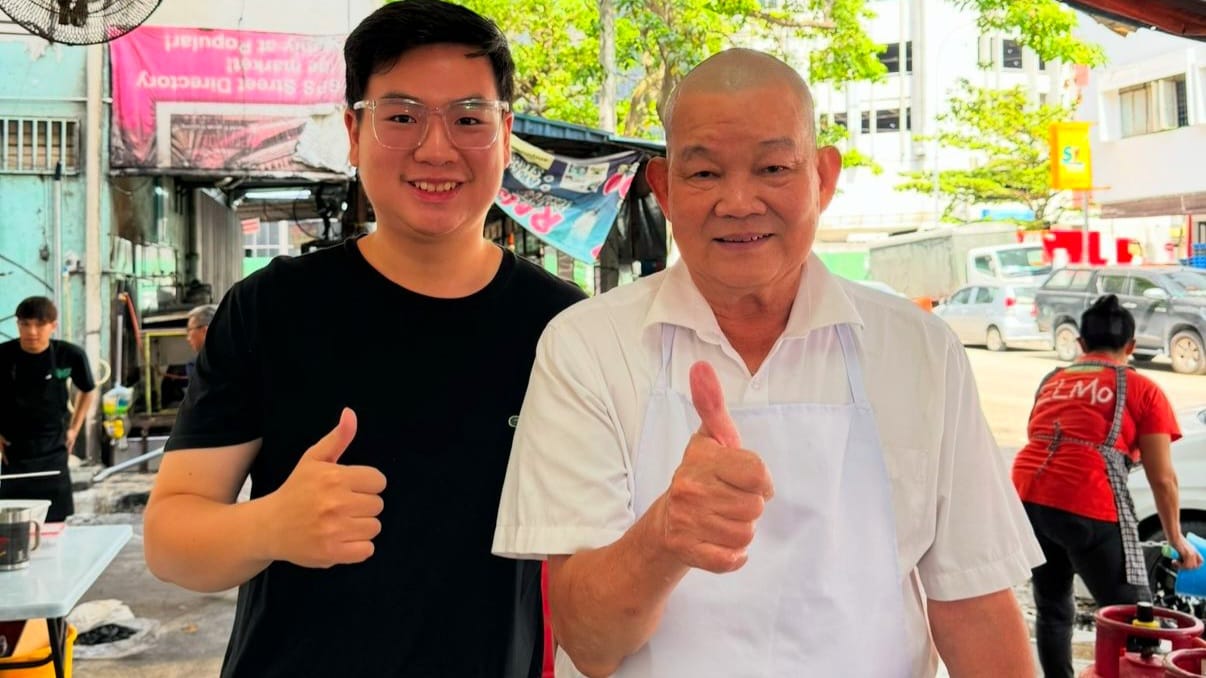
Step by step
Sedap Wangi's origin story is not unlike that of the pioneers who worked hard and sweat to get things started. Kevin's father, known as Ahui, moved from Riau to Jakarta in the early 1990s.
The money in his pocket was only Rp200,000, while the one-way boat fare was Rp150,000. The business capital of Rp50,000 was what Ahui used to start life in the overseas land.
At the time, Ahui didn't even speak Indonesian, as his mother tongue was Hokkien, in addition to Riau Malay, which was the language of instruction at the time. Armed with his trading skills, Ahui started his business by becoming a pork reseller, while accumulating capital from meager profits.
After some time in the trade, Ahui was able to purchase an Apollo-branded oven and tried it out to roast pork. He also recruited a cook from Hong Kong so that his outlet would not only sell roast pork, but also gradually expand the menu.
"The first outlet was in Chandra Building, Glodok. Then we opened a new branch in South Bandengan, but it was only for rent. When it got a bit crowded, the property owner decided to sell the place, and we couldn't afford to buy it. We were forced to move, and have been located here in Pinangsia since 2014, which is also the center," says Kevin.
The world of culinary business that Kevin has known since childhood is one of his motivations to study Business Management at Prasetiya Mulya University in 2018.
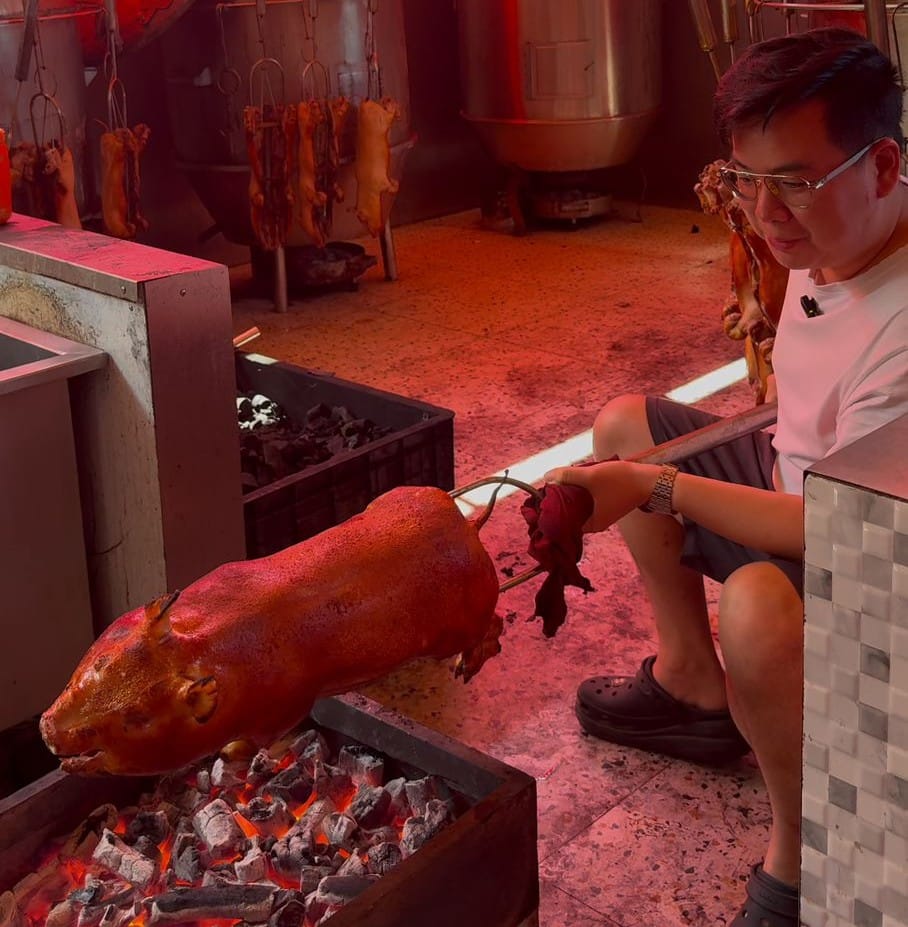
Hanging out with friends from wealthy families, Kevin understands that children of businessmen studying business are not necessarily good at business, let alone continuing the family business.
"Because I see that my friends don't dare to take risks. Also, they talk a lot, but don't do anything. They lived a very comfortable life, they were given a car, while I was only given a motorcycle and commuted by train. That thirst and not wanting to be inferior to them probably made me dare to come forward," he said.
In addition to the motivation from the college environment, the knowledge Kevin gained also became a meaningful provision. While his parents only focused on trading, Business Management courses helped him understand the importance of neat bookkeeping, building strong promotions and brands , efficient operational strategies, and guidelines for navigating the business into the future.
However, this knowledge did not allow him to interfere with the business. Kevin's toughest challenge as the next generation is to prove himself worthy, not only to his parents, but also to the senior employees who have been working for him since before he was born.
"I created content, promoted the menu, created new menus, made new innovations such as creating vacuum packaging so that the pork menu could be sent out of town. Slowly, the employees started to believe that I was worthy and therefore respectful. I didn't start by organizing, but by proving so that they could see for themselves and believe," said Kevin.
It wasn't always smooth sailing. Around 2019, Kevin began learning to work directly at the Pademangan branch of Sedap Wangi. At that time, at the age of 19, Kevin's coworkers were senior employees and relatives who were much older and experienced. Despite being the owner's son, his mental resilience was tested when a senior employee gave him a stern reprimand.
"I couldn't keep the tables tidy when the restaurant was busy. A senior employee reprimanded me, 'You can't handle this crowd?' I was slapped and felt I had to prove I could keep things tidy," she says.
Innovation and trust
Not only did Kevin prove his ability to work under pressure, he also injected Sedap Wangi with new breakthroughs. The innovation ideas are organic, coming from customer requests that are followed up after conducting a series of trials.
One of them is vacuum packaging that allows menus such as roast duck to be shipped out of town.
To understand the vacuum packaging method, Kevin even went as far as Nanjing, China. A roast duck outlet there had successfully created vacuum packaging that allowed their products to be shipped all over China. Now, with the same vacuum packaging method, Kevin is determined that Sedap Wangi products can reach all over Indonesia.
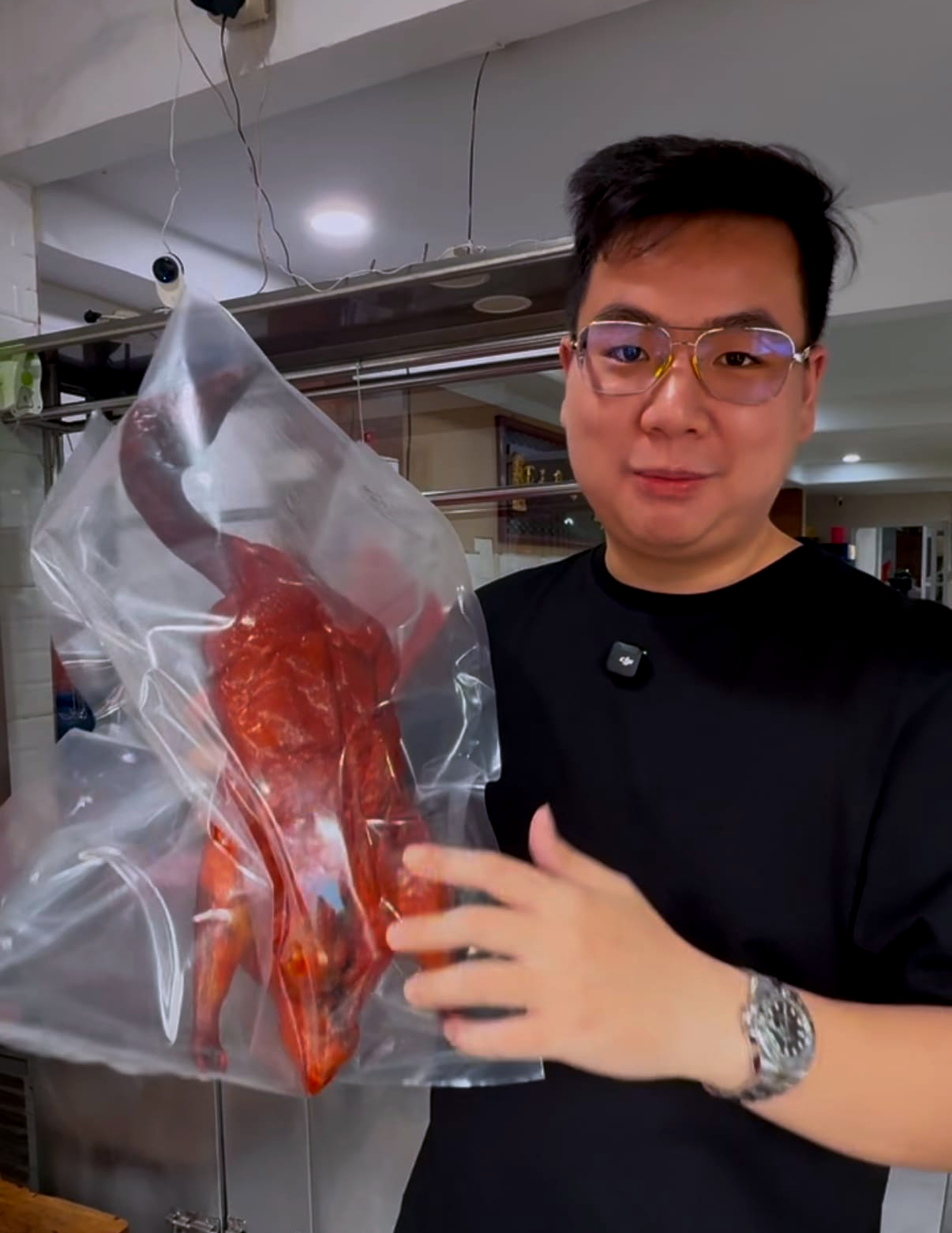
"The vacuum menu is a favorite of our customers outside the city. Perhaps, the only mixed rice outlet that sells pork and duck in vacuum packaging is Sedap Wangi," said Kevin proudly.
Of course, the success of the vacuum packaging came after a series of trials, from matching a vacuum machine that could seal without crushing the pork, to choosing a trustworthy freight forwarder.
Aside from innovation in product delivery, Kevin tried to solve other business challenges. Learning from the experience of having to move business premises when the landlord was unwilling to continue the lease, he was determined to make the Pinangsia branch a freehold status. In addition, social media marketing strategies and choosing a location for a new branch are also on Kevin's to-do list.
In social media marketing strategy, for example, Kevin innovates by creating organic content, by presenting human interest stories that really happen in Sedap Wangi outlets and branches. In addition, the consistency of products and flavors is strictly maintained, so that customers who are tempted after seeing the content are not disappointed.
"Our content dares to be different. No one who trades pork dishes makes a lot of content on social media. The power of storytelling that is honest and not made up, without ever recruiting celebrities or food vloggers, makes people see and follow. It's genuine, authentic, and has a unique product."
As the next generation of heirs, the future of Sedap Wangi is now in Kevin's hands. His father has given him his full trust, but has left him no legacy other than the spices, recipes and employees. Other than that, Kevin will determine everything from the operations of the restaurant, to the prospect of branch expansion. The key he has acquired, for him, is the greatest trust he can receive from his father.
"Not all family businesses are worth inheriting. We have to see if the business is going up or down. Since I saw that the business was on the rise, I was determined to continue it, no matter what, and I was desperate to prove that I was worthy. Trust is expensive, once it is broken, I know I will never get it back," Kevin concluded.

